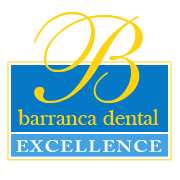Wisdom teeth, also known as third molars, are the final set of teeth to develop in your mouth. They commonly appear between the ages of seventeen and twenty five, a period in life sometimes known as the “Age of Wisdom,” and hence the name.
[image_frame style=”framed_shadow” align=”right” alt=”Third molars commonly appear between the ages of seventeen and twenty five, the so-called ‘Age of Wisdom’ | Irvine Dentist Neda Khodai, Barranca Dental – An Irvine Tradition of Dental Excellence” title=”Third molars commonly appear between the ages of seventeen and twenty five, the so-called ‘Age of Wisdom’ | Irvine Dentist Neda Khodai, Barranca Dental – An Irvine Tradition of Dental Excellence” width=”220″ height=”150″]https://www.barrancadental.com/wp-content/uploads/2011/12/file000946782271.jpg[/image_frame]
When properly positioned and healthy, wisdom teeth can be an asset to your mouth. More often than not, however, problems develop which facilitate the need to remove your wisdom teeth. Your wisdom teeth may be misaligned, unable to come in, your jaw could be too small for wisdom teeth, they may grow in sideways, only partially emerge, or even become trapped under your gum and bone.
What is an Impacted Tooth?
When a tooth can not fully enter your mouth, it is known as being “impacted.” Impacted teeth are usually unable to break through your gums due to a lack of space. As many as ninety percent of people have at least one of their wisdom teeth impacted.
How serious are impacted wisdom teeth?
When left in your mouth, impacted teeth damage nearby teeth and nerves. They may also become infected, which can cause systemic infection and diseases as it travels through your bloodstream to other areas of your body. Sometimes, a cyst may form near an impacted wisdom tooth. This cyst can lead to other problems as it will hollow out your jaw and damage nearby nerves and teeth.
If there is no damage, do I still need the tooth removed?
It is common practice to think that if you are not in pain, you don’t need to worry about your wisdom teeth. Pain free does not guarantee problem free or disease free. According to a scientific study by the American Association of Oral and Maxillofacial Surgeons and the Oral and Maxillofacial Surgery Foundation: wisdom teeth that come in regularly are still subject to disease.
Existing bacteria in your mouth may lead to gum disease or other problems before you have any type of symptom. Regular dental practices such as brushing and flossing prevent problems in other parts of your mouth, but the backwards location of wisdom teeth make maintenance of the area difficult. Studies show that gum disease and bacteria buildup in the location of wisdom teeth has a frequent negative effect on nearby teeth and the back of your mouth. Bacteria located in the region of your third molars may lead to gum disease, and in certain cases can even travel through your bloodstream, impacting your heart, kidney, and other vital organs. Although evidence is still building, studies suggest that systemic disease such as diabetes can even be related to your third molars.
Expectant mothers need to be especially careful, as bacteria from the third molar region can lead to premature birth and low birth weight.
When Is the Best Time to Have My Wisdom Teeth Removed?
While this is a question only your dentist can answer specifically, in general it is best and easiest to remove Wisdom teeth when the patient is young. Nearby bone is softer, the roots of the teeth are not fully formed, and there is a much smaller chance of damaging nearby nerves. As wisdom teeth grow, their roots will grow in size and may become entangled with nerves in the sinus area and the lower jaw. This can cause complications in their removal.
As we mentioned above, it definitely is not a good idea to wait until your wisdom teeth start to hurt before speaking to your dentist about having them removed. When it comes to wisdom teeth, the “wisest” approach to to have them taken out as early as possible, and the AAOMS study urges that they be removed by the time the patient is a young adult.
Patients should ask Dr. Khodai about the health and positioning of their wisdom teeth. Depending on your own special circumstance, Dr. Khodai may make a recommendation for removal of your wisdom teeth.
Contact Us!
If you have questions about your wisdom teeth or just need a teeth cleaning, it’s time to schedule an appointment with Irvine Dentist Dr. Neda Khodai. Call us at 949-553-1111 or Click below to get in touch with Barranca Dental Excellence.
[button size=”medium” link=”https://www.barrancadental.com/schedule-an-appointment-online/”]Schedule an Appointment Online[/button]
